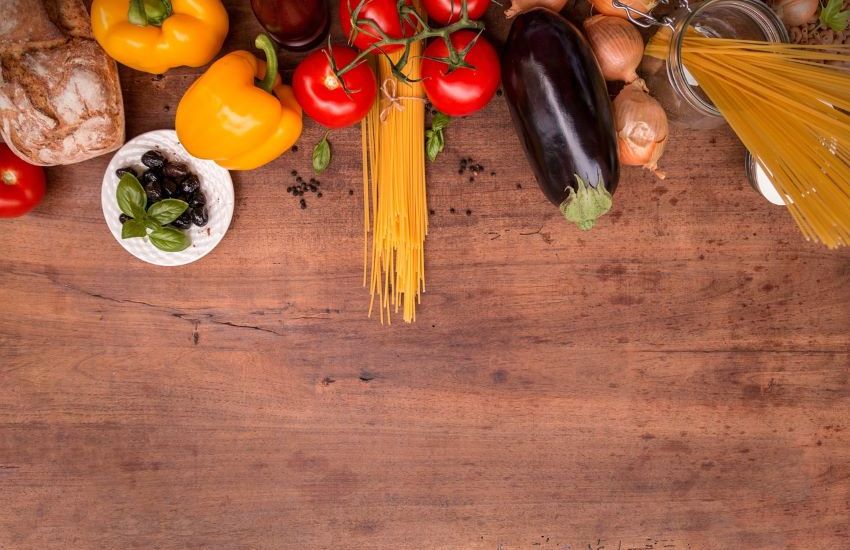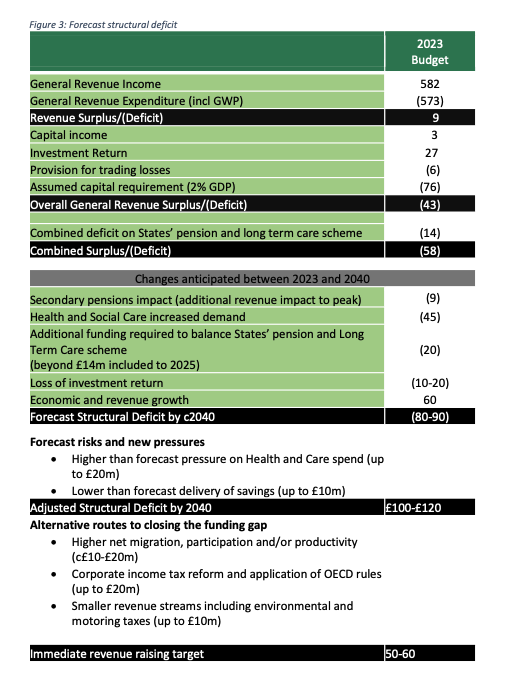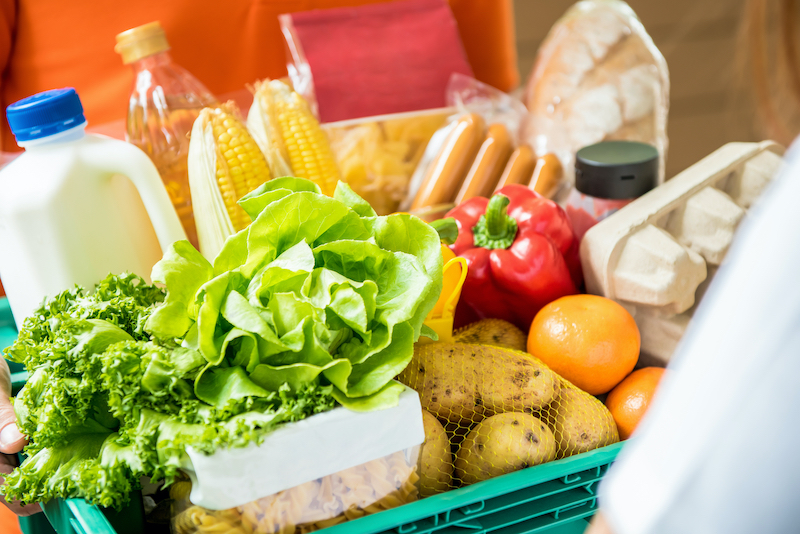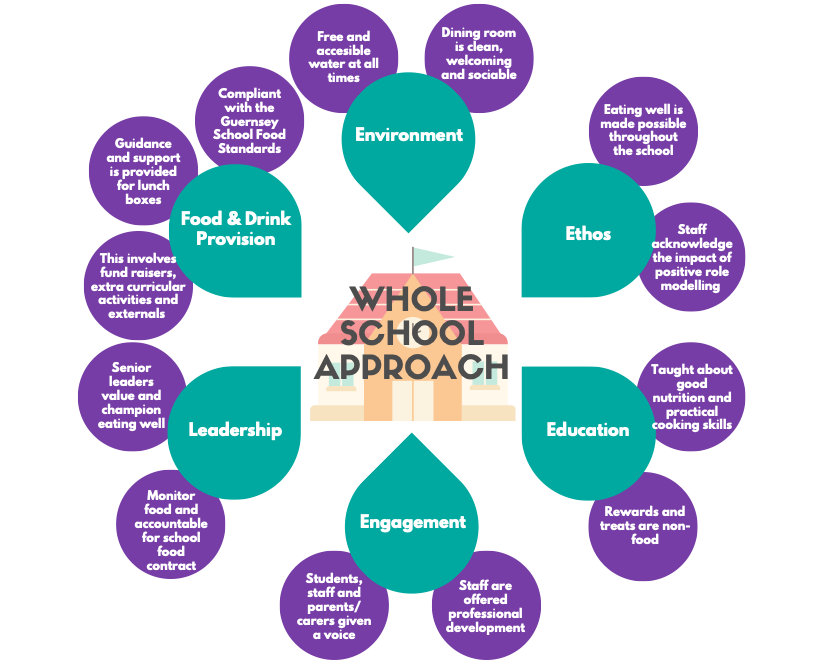


What we choose to eat has a big bearing on health outcomes, and with health costs projected to rocket in the coming two decades, what’s being done locally to ensure preventable diseases don’t develop in the population?
Express approached the Health Improvement Commission following a Guernsey Literary Festival talk by Henry Dimbleby and Jemima Lewis on the food system and diet. Several of its staff members were in the audience.
The Commission says it too follows a “whole systems approach” to tackle “tackle complex public health issues”, including nutrition and obesity.
“As shown in the book and the talk, poor diet and obesity are complex issues which will not be solved by a single solution but by a coordinated series of interventions which work at different points in the system.
“The most effective way to work is to take a whole system approach to the prevention of poor health occurring in the first place. This approach has been highly successful in, for example, dramatically reducing smoking rates over the last 50 years.”
Improving nutrition can be achieved by implementing polices, changing product ingredients, taxing foods high is sugar and salt and through community interventions, such as education campaigns and working with schools, it said.

Pictured: The Health Improvement Commission works to do what its name implies.
Doing so can help to prevent, rather than intervene with, poor health and therefore lower “future costs to the health service”, the Commission added.
Policy & Resources’ tax review policy letter forecast that costs, driven by increased demand, for health services between now and 2040 would top £45m. That doesn’t include funding necessary to ensure the long-term care scheme is financially sustainable.
The senior committee also included a £20m buffer on top of this figure should there be “higher than forecast pressure” on health spending by 2040.
That’s a real term spending increase of £3m per year, but cash pressures over the previous few years indicate that spending will need to be higher than that, and “there is a risk that this will persist” it added.
While not all health costs are linked to the effects of diet, poor diets are linked to a high percentage of preventable, non-transmissible conditions which together trump diseases caused by tobacco use.
The HIC said: “Our diet is a main contributor to a range of preventable diseases including overweight, obesity, diabetes and high blood pressure and cardiovascular disease as well as our mental health. These are all major causes of ill health locally.
“As such, community nutrition is a core focus of ours under our ‘Eat Well’ workstream."

Pictured: P&R's forecast deficit from November 2022.
Mr Dimbleby highlighted in his talk that average household spending on confectionery outstrips spending on fruits and vegetables by over £1bn per year.
The latest Guernsey Household Expenditure Survey found that, on average, £1,087 was being spent on fruits and vegetables, with £963 spent on confectionery per year. The data captured the period between 2018 and 2019.
Food prices have risen at the fastest rate in over 45-years since then. The increases have largely been driven by the cost of cereals and bread.
The Commission does not “recommend making a direct comparison between this data and the UK data because categories of food products are likely to not be exactly the same, and our retail landscapes and food prices are very different”.
25% of primary and secondary school students reported eating at least five or more portions of fruit and veg on the previous day in the 2022 Young People’s Survey. 50% adults reported doing the same in the 2018 Health & Wellbeing Survey.
“We do not feel that Guernsey is immune to the junk food cycle that Henry Dimbleby refers to, and we believe strongly that a whole system approach is needed and could be implemented,” the Commission said.

Pictured: The UK is clamping down on junk food in supermarkets to encourage healthier options to be noticed and developed.
Public health benefits are being realised through UK government regulation on junk food, but continued intervention by external governments is required for future changes as foodstuffs trickle through the supply chain into the islands.
The Commission said this is true of high fat, salt, and sugar products (HFSS): “It is good news that the health impact of several regulations in the UK will be inherited by us in Guernsey due to our supply chain. For example, the Soft Drinks Industry Levy has been shown to be effective through encouraging manufacturers to reformulate their products and reducing the amount of sugar in drinks.
“The total sugar sold in soft drinks by retailers and manufacturers decreased by 35.4% from 2015 to 2019, from 135,000 tonnes to 87,600 tonnes. Evaluation has shown that there was no lasting negative impacts on the UK soft drinks industry."
This effortlessly filters through to the Bailiwick as around 97% of goods are imported.
“Similarly, if the UK government supported restrictions on junk food advertising on TV and online to young people, our young people would benefit,” the Commission said.
The marketing and positioning of HFSS products has recently been altered in the UK for larger stores. Multi-buys and buy-one-get-one-free offers for junk food are set to be banned, but the UK government has delayed implementation from October 2023.
The Commission says it will wait “to learn more about how retailers are responding on the mainland before proposing a similar concept locally”.

Pictured: The Commission's 'whole school' approach.
The Commission has developed various policies that have been adopted within early years settings and schools that have been universally applied.
“We support each setting to understand the policy and make practical changes which cover food served, food brought from home, messaging and staff training to ensure that positive food habits are formed in early life,” it said.
The Food in Guernsey schools directive has seen the menus at canteens change significantly from what was offered 10-years ago: “This aims to ensure that school leadership, culture and ethos, food policy, food provision and the curriculum all make it easy and normal to eat well at school."
One success story has been at the College of Further Education, with a build-your-own wrap station introduced with numerous fresh fillings available: “We collected café data before and after this initiative was launched and saw a 50% increase consumption of vegetables in this setting,” it said.
“We have also received positive feedback from the college staff including how they now proactively asking which salad items students would like to add and are also encouraging students to try new items."
Work has also now commenced to teach young people vegetable growing and improve understanding about where, and how, our food is produced.
The adoption of food standards at States-premises, such as Beau Sejour and the hospital, are being trialed with the public surveyed on what foods they would like to see more or less of on offer.
A new project – Food4Sport – which will fully launch around the Island Games, will see the Commission work with sports clubs to “help them to make small changes to their food provision.
“We believe that when using community sports facilities that provide food, there should be the opportunity to have access to food that benefits your health."
Focus groups and surveys will be rolled out this year to gather more information about “the local perception of our current food environment”.
Comments
Comments on this story express the views of the commentator only, not Bailiwick Publishing. We are unable to guarantee the accuracy of any of those comments.